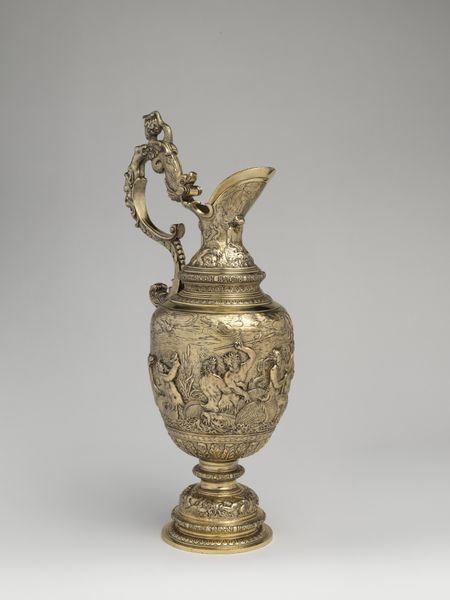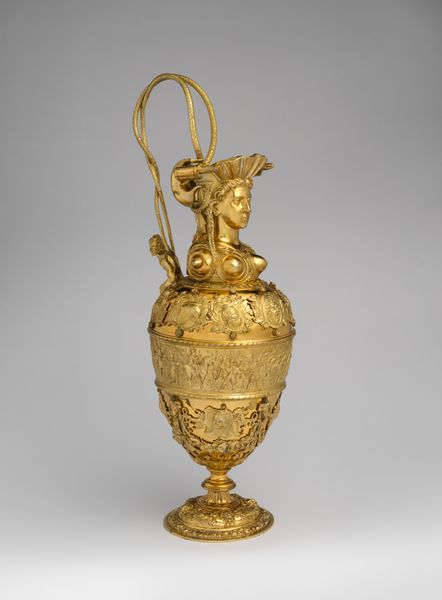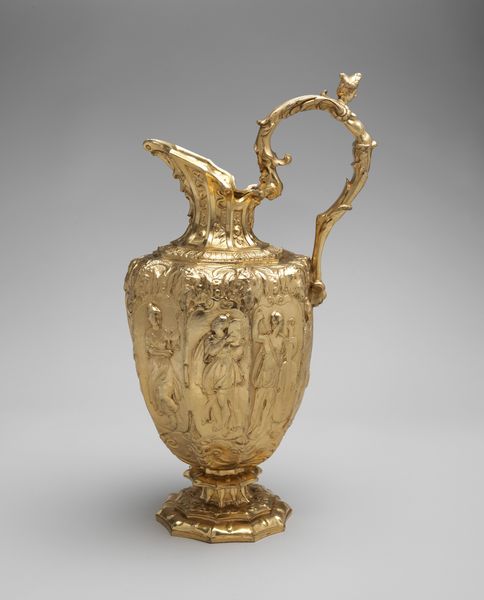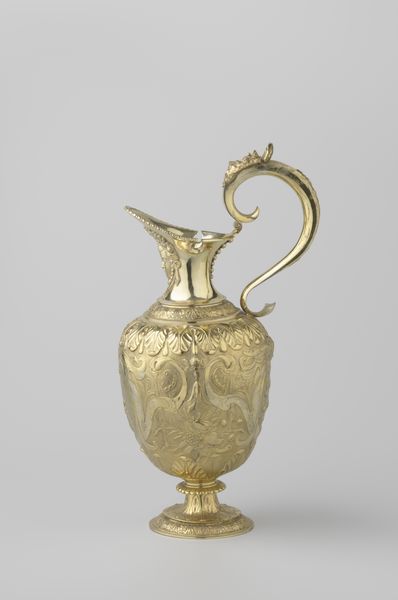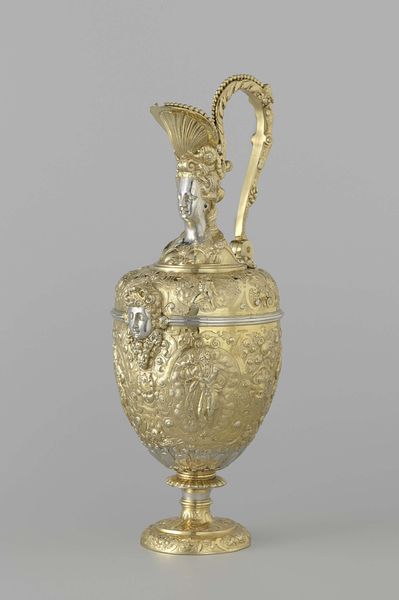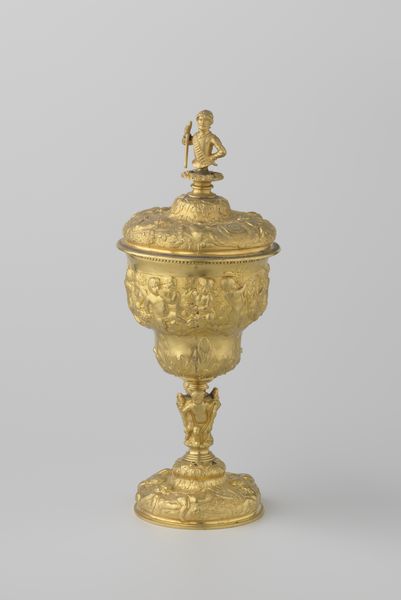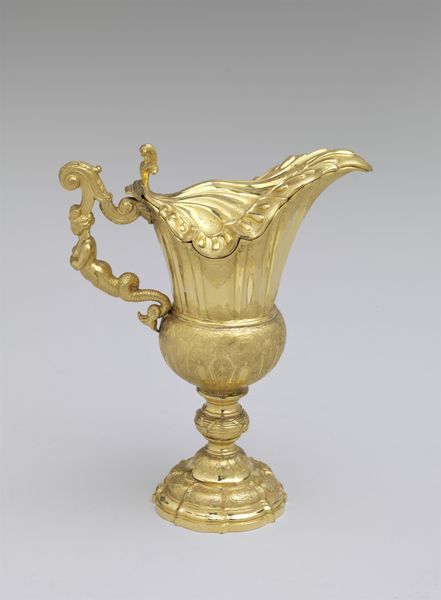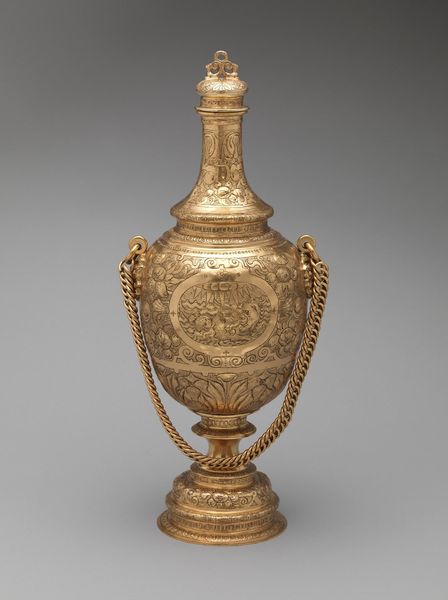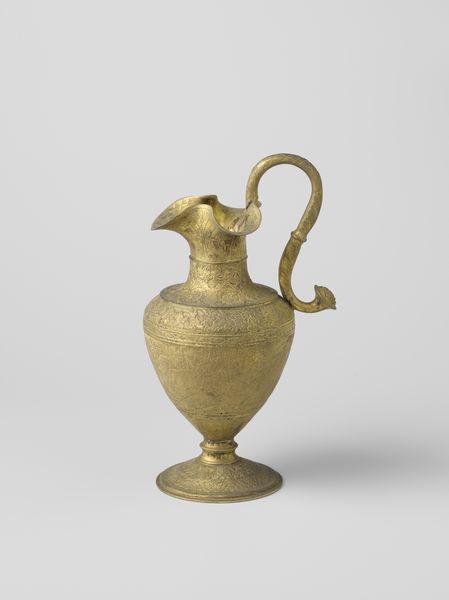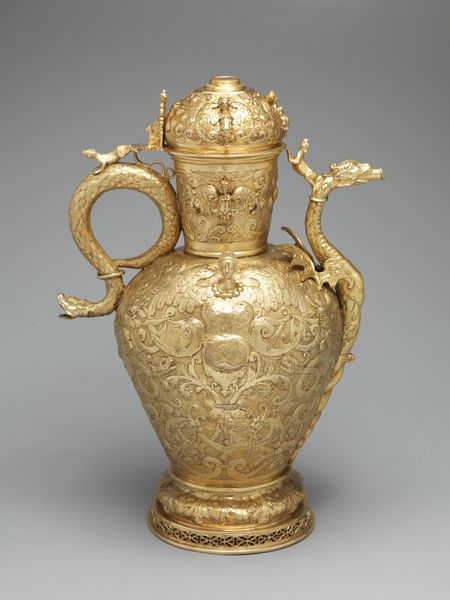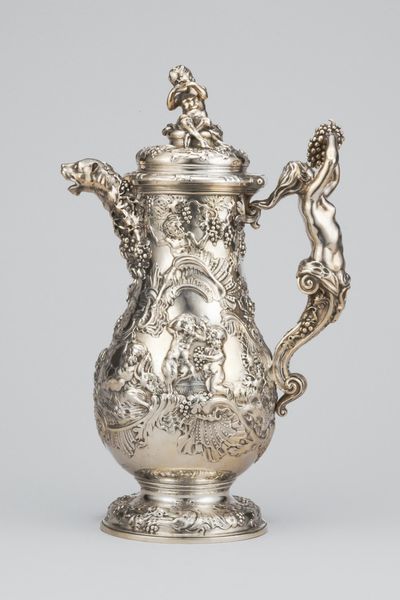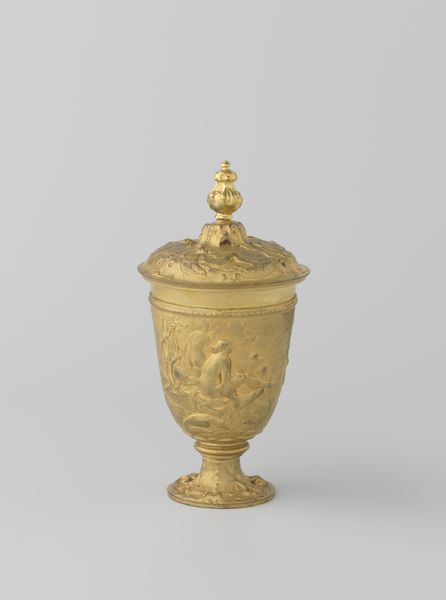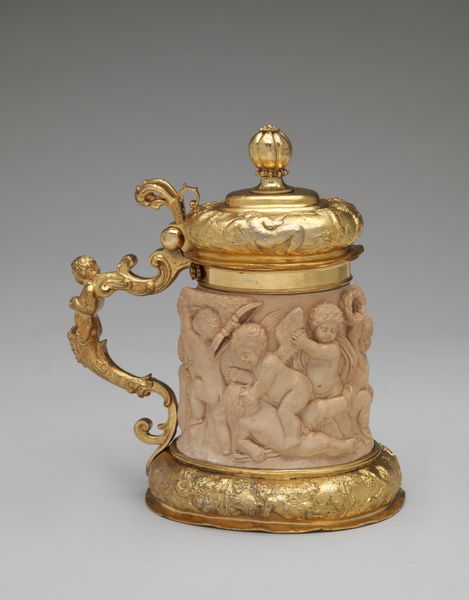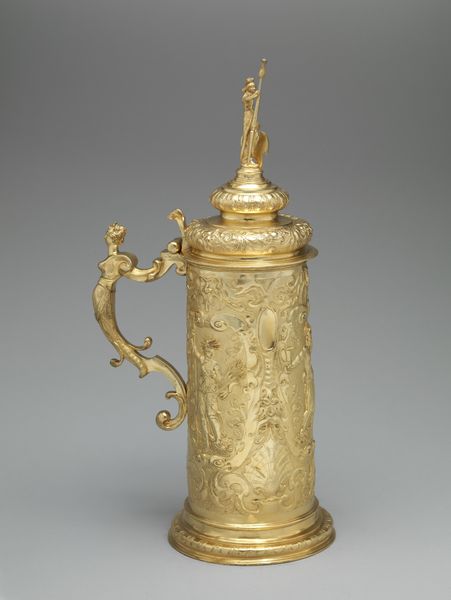
Galvanoplastische reproductie van een kan met optochten van zeegoden before 1880
0:00
0:00
elkingtonco
Rijksmuseum
metal, relief, bronze, sculpture
#
3d sculpting
#
3d model
#
allegory
#
narrative-art
#
3d printed part
#
rounded shape
#
metal
#
greek-and-roman-art
#
relief
#
jewelry design
#
virtual 3d design
#
round design
#
retro 'vintage design
#
bronze
#
figuration
#
3d shape
#
sculpture
#
metallic object render
#
decorative-art
Dimensions: height 38.7 cm, width 17.8 cm, weight 1274 gr
Copyright: Rijks Museum: Open Domain
Editor: So, this is a galvanoplastic reproduction of a ewer depicting processions of sea gods. It’s attributed to Elkington & Co., placing it sometime before 1880. It gives me a very strong sense of the opulence prized by the late 19th century, and I am curious about the classical allusions. What do you see in this piece? Curator: Beyond its aesthetic appeal, it's fascinating to consider the sociopolitical implications of reproducing classical art during the Victorian era. Who had access to these replicated images of power and mythology, and what narratives were they reinforcing? How did it impact perceptions of colonialism at the time? Editor: I hadn't considered the implications on colonial power, that's a powerful reading. Do you see any reflections on gender, too, in how these sea gods are depicted, or is it a stretch? Curator: It's certainly worth exploring. Consider the often-idealized and masculine representations of figures like Poseidon or Neptune in these processions. These depictions contribute to the reinforcement of a patriarchal structure. Were there equally prevalent and powerful depictions of sea goddesses at the time, or are they marginalized? How does that silence shape our understanding? Editor: That really recontextualizes how I perceive the piece now. Thank you for this insight, especially the way that historical art reinforces power structures, still influencing our understanding of art today. Curator: Absolutely, and considering these objects are often presented without critical contextualization, raising those questions are really key to opening new lines of inquiry.
Comments
No comments
Be the first to comment and join the conversation on the ultimate creative platform.
